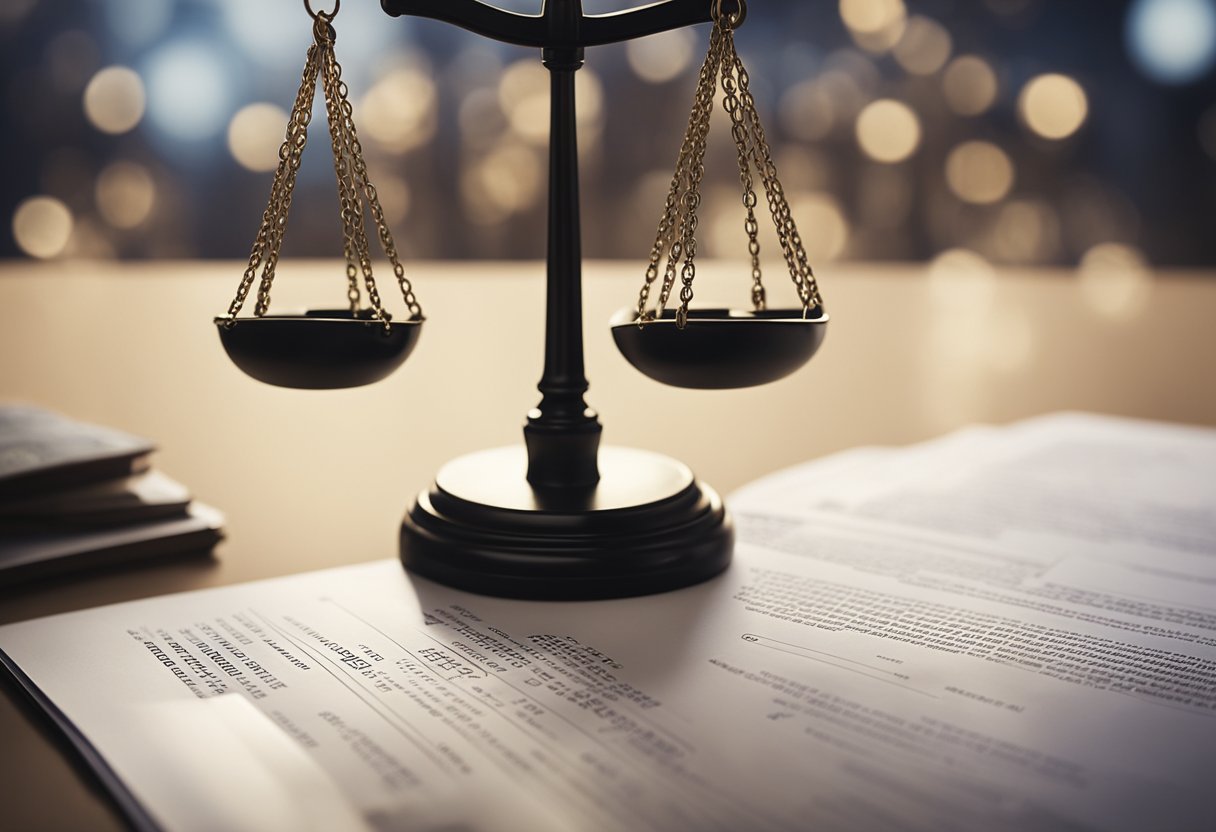As a professional law firm, we understand that legal issues can be overwhelming and expensive. One of the most significant expenses you may face when dealing with legal issues is the cost of hiring an attorney. Attorney fees can vary depending on a variety of factors, including the complexity of the case, the attorney's experience, and the location of the law firm. In this article, we will explore the topic of attorney fees and help you understand how much you can expect to pay for legal services.

Understanding Attorney Fees Attorney fees can be charged in a variety of ways, including hourly rates, flat fees, contingency fees, and retainer fees. Hourly rates are the most common type of fee arrangement and are charged based on the amount of time an attorney spends working on your case. Flat fees are a set amount that is charged for a specific service, such as drafting a will or filing for bankruptcy. Contingency fees are typically used in personal injury cases and are based on a percentage of the settlement or judgment. Retainer fees are paid upfront and are used to secure an attorney's services.
Budgeting for Legal Services When budgeting for legal services, it is essential to consider the type of fee arrangement that will be used, as well as the attorney's hourly rate or flat fee. You should also consider any additional costs, such as court fees and expert witness fees, that may be associated with your case. It is important to discuss fees and costs with your attorney upfront to avoid any surprises later on.
Key Takeaways
- Attorney fees can vary depending on a variety of factors, including the complexity of the case, the attorney's experience, and the location of the law firm.
- Attorney fees can be charged in a variety of ways, including hourly rates, flat fees, contingency fees, and retainer fees.
- When budgeting for legal services, it is essential to consider the type of fee arrangement that will be used, as well as any additional costs that may be associated with your case.
Understanding Attorney Fees

As attorneys, we understand that the cost of legal representation can be a source of concern for many clients. In this section, we will discuss the different fee structures used by attorneys, the average costs of legal services, and the factors that influence attorney fees.
Fee Structures
Attorneys may use various fee structures when billing for their services. The most common fee structures include:
- Hourly: This fee structure charges clients by the hour for the attorney's time spent on their case.
- Flat fee: This fee structure charges clients a set amount for the entire case, regardless of the amount of time spent on it.
- Contingency: This fee structure charges clients a percentage of the amount recovered in a case, typically used in personal injury or other types of litigation.
Average Costs
The cost of legal services can vary depending on the type of case, the complexity of the case, and the attorney's experience and reputation. According to our research, the average hourly rate for an attorney in the United States is around $250 per hour. However, this rate can be much higher for attorneys with more experience or in larger cities.
For flat fee arrangements, the cost can range from a few hundred dollars for a simple legal matter to tens of thousands of dollars for a complex case. For contingency arrangements, the percentage charged can range from 20% to 50% of the amount recovered.
Factors Influencing Fees
Several factors can influence the cost of legal services. These factors include:
- Experience and reputation of the attorney
- Complexity of the case
- Time and resources required to handle the case
- Geographic location of the attorney
- Type of fee structure used
It is important to discuss fees with your attorney upfront and to have a clear understanding of how you will be billed for their services. This will help you avoid any surprises and ensure that you can afford the legal representation you need.
Budgeting for Legal Services

When it comes to hiring a lawyer, one of the most important factors to consider is the cost. Legal services can be expensive, and it's important to budget accordingly. Here are some things to keep in mind when budgeting for legal services.
Initial Consultation Fees
Many lawyers offer an initial consultation for free or for a reduced fee. During this consultation, you can discuss your case with the lawyer and get a sense of what their services will cost. It's important to be upfront about your budget during this consultation so that the lawyer can give you an accurate estimate of their fees.
Retainer Agreements
Some lawyers require clients to sign a retainer agreement before they begin work on a case. A retainer is a fee that you pay upfront to secure the lawyer's services. This fee is usually applied to the final bill, but it's important to read the retainer agreement carefully to understand how the fee will be applied.
Additional Expenses
In addition to the lawyer's fees, there may be other expenses associated with your case. For example, you may need to pay for court fees, expert witnesses, or other legal services. It's important to discuss these expenses with your lawyer upfront so that you can budget accordingly.
Overall, it's important to be realistic about your budget when hiring a lawyer. While legal services can be expensive, it's important to remember that a good lawyer can help you achieve the best possible outcome for your case. By discussing your budget and expectations with your lawyer upfront, you can ensure that you get the services you need at a price you can afford.
Negotiating Attorney Fees

When hiring an attorney, it is important to understand how their fees work and how to negotiate them. Here are some tips to help you negotiate attorney fees.
Comparing Rates
Before hiring an attorney, it is important to compare rates. Research different attorneys in your area and find out how much they charge for their services. Keep in mind that rates may vary depending on the attorney's experience and expertise. Don't be afraid to ask for references or to speak with former clients to get an idea of how the attorney works and what their fees are.
Fee Agreements
When negotiating attorney fees, it is important to have a clear fee agreement in writing. This agreement should outline the scope of the attorney's services, the fees that will be charged, and how those fees will be paid. Make sure to read the agreement carefully and ask questions if anything is unclear.
It is also important to understand the different types of fee agreements that attorneys may offer. These include hourly fees, flat fees, and contingency fees. Hourly fees are charged for the time the attorney spends working on your case. Flat fees are a set amount for the entire case, regardless of how much time the attorney spends on it. Contingency fees are only paid if the attorney wins your case and are usually a percentage of the settlement or judgment.
By comparing rates and understanding fee agreements, you can negotiate attorney fees and find an attorney that fits your budget. Remember to always have a clear fee agreement in writing to avoid any misunderstandings down the line.
Legal Aid and Alternative Options

If you cannot afford to hire a private attorney, there are alternative options available to you. In this section, we will discuss two options: pro bono services and legal insurance plans.
Pro Bono Services
Pro bono services are offered by attorneys who volunteer their time to provide legal services to those who cannot afford to pay for them. These services may be provided by individual attorneys, law firms, or legal aid organizations. Pro bono services may include legal representation, advice, or assistance with legal forms.
To find pro bono services in your area, you can check with your local bar association or legal aid organization. You can also search online for pro bono services in your state or city.
Legal Insurance Plans
Legal insurance plans are similar to health insurance plans, but they cover legal services instead of medical services. These plans typically require a monthly or annual fee, and they provide coverage for a variety of legal services, such as consultations, document review, and representation in court.
Before signing up for a legal insurance plan, it is important to read the terms and conditions carefully to understand what services are covered and what the limitations are. You should also compare the costs and benefits of different plans to find one that best fits your needs.
In conclusion, if you cannot afford to hire a private attorney, there are alternative options available to you. Pro bono services and legal insurance plans can provide you with the legal assistance you need at a more affordable cost.
Frequently Asked Questions

What are the typical charges for a civil lawsuit attorney?
The charges for hiring a civil lawsuit attorney can vary widely depending on the complexity of the case and the experience of the attorney. Typically, attorneys charge an hourly fee ranging from $150 to $500 per hour. In addition to the hourly fee, attorneys may also charge a retainer fee, which is an upfront payment to secure their services. The retainer fee can range from a few thousand dollars to tens of thousands of dollars.
How much does it cost to hire an attorney for a divorce case?
The cost of hiring an attorney for a divorce case can also vary widely depending on the complexity of the case and the experience of the attorney. Typically, attorneys charge an hourly fee ranging from $150 to $500 per hour. In addition to the hourly fee, attorneys may also charge a retainer fee, which is an upfront payment to secure their services. The retainer fee can range from a few thousand dollars to tens of thousands of dollars.
What are the fees for hiring an attorney in a fraud case?
The fees for hiring an attorney in a fraud case can vary widely depending on the complexity of the case and the experience of the attorney. Typically, attorneys charge an hourly fee ranging from $150 to $500 per hour. In addition to the hourly fee, attorneys may also charge a retainer fee, which is an upfront payment to secure their services. The retainer fee can range from a few thousand dollars to tens of thousands of dollars.
What is the hourly rate for legal representation?
The hourly rate for legal representation can vary widely depending on the complexity of the case and the experience of the attorney. Typically, attorneys charge an hourly fee ranging from $150 to $500 per hour.
How are attorney fees calculated for land dispute cases?
The fees for hiring an attorney in a land dispute case can vary widely depending on the complexity of the case and the experience of the attorney. Typically, attorneys charge an hourly fee ranging from $150 to $500 per hour. In addition to the hourly fee, attorneys may also charge a retainer fee, which is an upfront payment to secure their services. The retainer fee can range from a few thousand dollars to tens of thousands of dollars.
Who is eligible for pro bono legal services?
Pro bono legal services are typically available to individuals who cannot afford to pay for legal representation. Eligibility for pro bono legal services varies by location and organization. In general, individuals who are low-income, elderly, disabled, or victims of domestic violence may be eligible for pro bono legal services. It is best to contact local legal aid organizations or bar associations for more information on pro bono legal services in your area.
